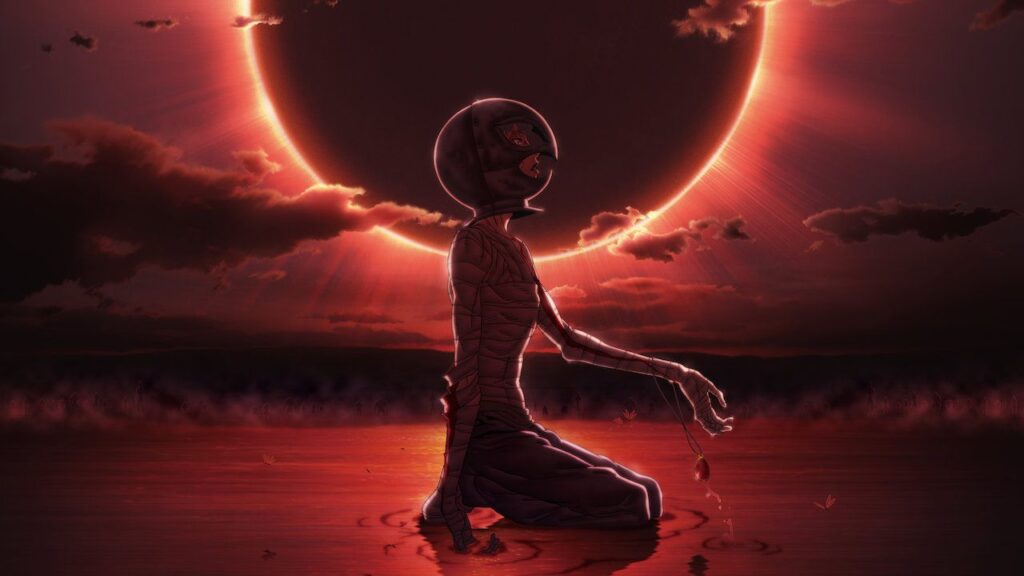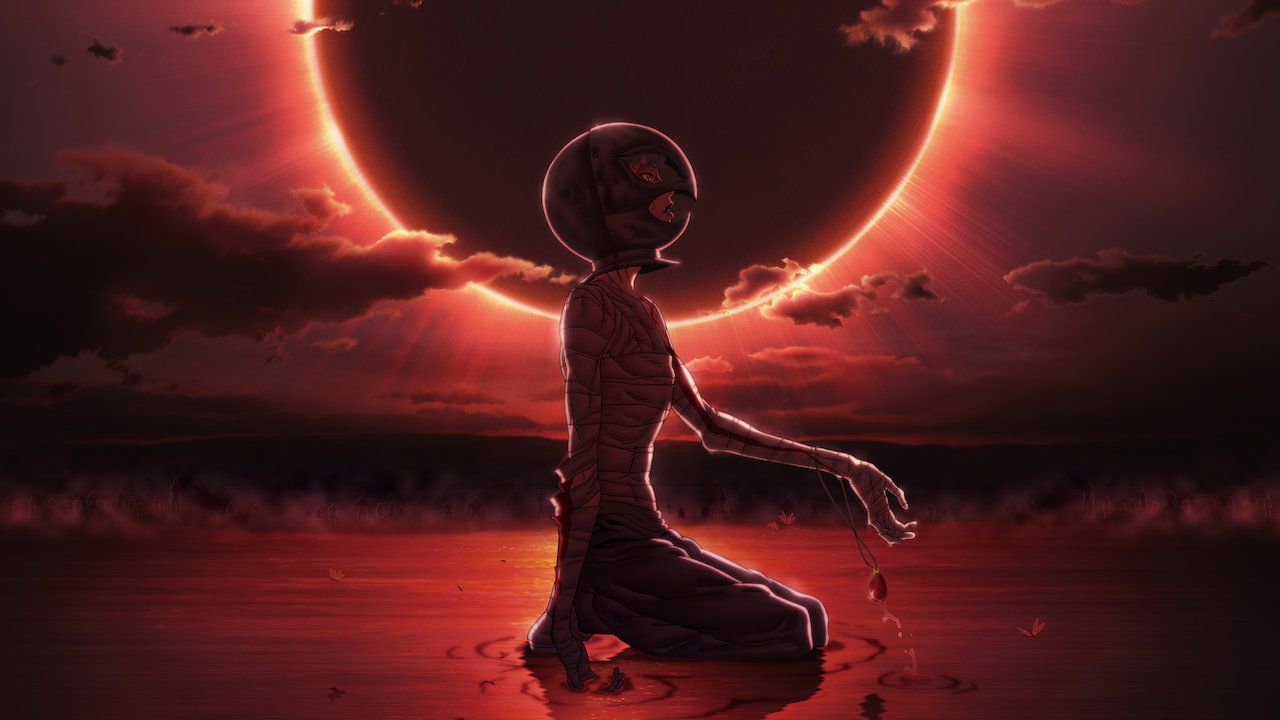
Berserk: Delving into the Enigmatic God Hand and Their Influence
Kentaro Miura’s Berserk is a dark fantasy masterpiece renowned for its intricate world-building, compelling characters, and unflinching exploration of humanity’s darker aspects. At the heart of this grim saga lies the God Hand, a group of five immensely powerful, godlike beings who exert a profound influence over the fate of the world and its inhabitants. Understanding the God Hand is crucial to grasping the overarching narrative of Berserk, their motivations, and the impact they have on Guts’s relentless quest for revenge. This article will delve into the lore surrounding the God Hand, exploring their origins, abilities, and their role in shaping the events of the series.
The Origins of the God Hand
The origins of the God Hand are shrouded in mystery, but it is known that they are not natural beings. They are believed to have ascended to their positions through the Behelit, a mysterious artifact that connects individuals to the God Hand and the Idea of Evil. The Behelit, often referred to as the Egg of the King, chooses individuals who are at their lowest point, filled with despair and a desire for power, offering them a chance to transcend their mortal limitations.
The Crimson Behelit, in particular, is the catalyst for the Eclipse, a ritualistic event where a chosen apostle sacrifices what they hold most dear to become a member of the God Hand. This sacrifice is often the most horrific and traumatic experience imaginable, forever scarring the individual and solidifying their allegiance to the malevolent forces that govern the world of Berserk. Becoming a member of the God Hand comes at the ultimate price: the loss of one’s humanity and the embrace of a twisted, godlike existence.
Members of the God Hand
The God Hand consists of five distinct members, each possessing unique abilities and representing different aspects of the dark forces that permeate the world of Berserk:
Void
Void is often considered the leader or the figurehead of the God Hand. He is characterized by his exposed brain and cryptic pronouncements. Void seems to be the most intellectual and philosophical of the group. His role appears to be primarily strategic and ceremonial, orchestrating events to further the goals of the God Hand. He is present at the Eclipse and appears to be responsible for initiating the ritual.
Slan
Slan is the only female member of the God Hand, and she embodies lust and desire. She is often depicted as seductive and alluring, but beneath her captivating exterior lies a cruel and sadistic nature. Slan manifests through the emotions and desires of humans, feeding on their passions and perversions. Her presence is often associated with corruption and depravity. She is also known as the Whore Princess of the Uterine Sea.
Ubik
Ubik specializes in manipulating the minds of others through illusions and psychological torture. He is a master of deception and can warp reality to break his victims’ spirits. Ubik’s methods are subtle and insidious, preying on the deepest fears and insecurities of those he targets. He is considered the most sadistic member of the God Hand.
Conrad
Conrad represents disease and decay. His presence is often associated with plagues and widespread suffering. He is the most enigmatic of the God Hand, and little is known about his specific abilities or motivations beyond spreading misery and corruption. His quiet presence speaks volumes about the nature of his influence.
Femto (Griffith)
Femto is the most recent addition to the God Hand and arguably the most significant character in Berserk. He was formerly Griffith, the charismatic leader of the Band of the Hawk. In his pursuit of power and a kingdom, Griffith sacrificed his comrades during the Eclipse to become Femto. As Femto, he possesses immense power and represents causality and destiny. His actions have had a profound impact on Guts and the world of Berserk, driving the narrative forward.
The Influence of the God Hand
The God Hand exert a significant influence over the world of Berserk, shaping events and manipulating individuals to serve their own purposes. They operate through the Idea of Evil, a collective unconsciousness of humanity’s darkest desires and fears. The Idea of Evil uses the God Hand as agents to maintain the status quo and prevent humanity from achieving true freedom. Their actions are often subtle and indirect, but their impact is far-reaching.
The God Hand are not omnipotent, however. They are bound by causality, meaning that their actions are predetermined and they cannot deviate from the path laid out for them. This limitation does not diminish their power, but it does suggest that there may be a way to challenge their influence. Guts’s struggle against the God Hand represents a defiance of fate and a determination to forge his own destiny.
The Eclipse, orchestrated by the God Hand, serves as a prime example of their influence. By manipulating Griffith’s ambition and despair, they created the conditions for the sacrifice of the Band of the Hawk, resulting in the birth of Femto and the further entrenchment of the God Hand’s power. This event is a pivotal moment in Berserk, setting the stage for Guts’s relentless quest for revenge and his battle against the forces of darkness. [See also: Berserk: Guts’s Struggle Against Fate]
The Symbolism of the God Hand
The God Hand are rich in symbolism, representing various aspects of human nature and the forces that shape our world. Void represents intellect and control, Slan embodies lust and desire, Ubik symbolizes manipulation and deception, Conrad represents decay and disease, and Femto embodies causality and destiny. Each member of the God Hand reflects a different facet of the human condition, highlighting the potential for both good and evil that exists within us all.
The God Hand’s existence also raises questions about free will and determinism. Are we truly free to choose our own paths, or are we merely puppets of fate, manipulated by forces beyond our control? Berserk explores these themes through Guts’s struggle against the God Hand, challenging the notion that our destinies are predetermined. Guts’s unwavering resolve and his refusal to succumb to despair offer a glimmer of hope in a world consumed by darkness.
The God Hand in Popular Culture
The God Hand have left an indelible mark on popular culture, inspiring countless works of fiction and influencing the dark fantasy genre. Their unique designs, complex motivations, and profound impact on the narrative have made them iconic villains. Many works of fiction have borrowed elements from the God Hand, creating similar groups of powerful, godlike beings who manipulate events from behind the scenes. The influence of the God Hand can be seen in video games, anime, manga, and other forms of media.
The enduring appeal of the God Hand lies in their ability to embody complex themes and challenge our perceptions of good and evil. They are not simply villains to be defeated; they represent the darker aspects of humanity and the forces that shape our world. Their existence forces us to confront uncomfortable truths about ourselves and the nature of reality. [See also: Berserk: Exploring Themes of Good and Evil]
Conclusion
The God Hand are an integral part of Berserk, shaping the narrative and influencing the fate of its characters. Their origins, abilities, and motivations are shrouded in mystery, but their impact on the world is undeniable. Understanding the God Hand is crucial to grasping the overarching themes of Berserk, including free will, determinism, and the struggle against fate. As Guts continues his quest for revenge, he must confront the God Hand and challenge their power, fighting for his own destiny in a world consumed by darkness. The enigmatic nature of the God Hand continues to fascinate fans, solidifying their place as some of the most compelling and terrifying villains in dark fantasy history. The story continues to unfold, and the role of the God Hand remains a central point of interest for fans worldwide.

